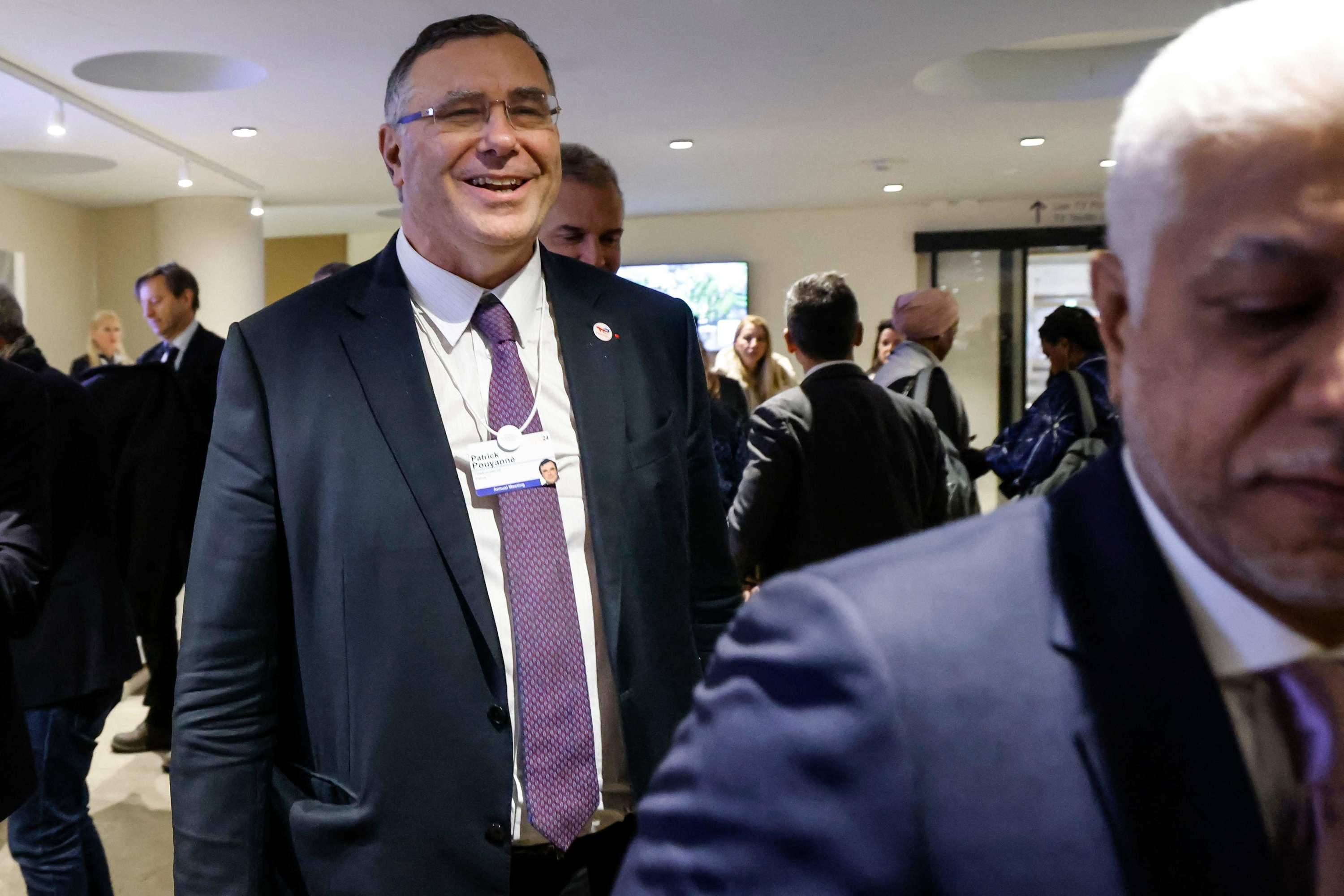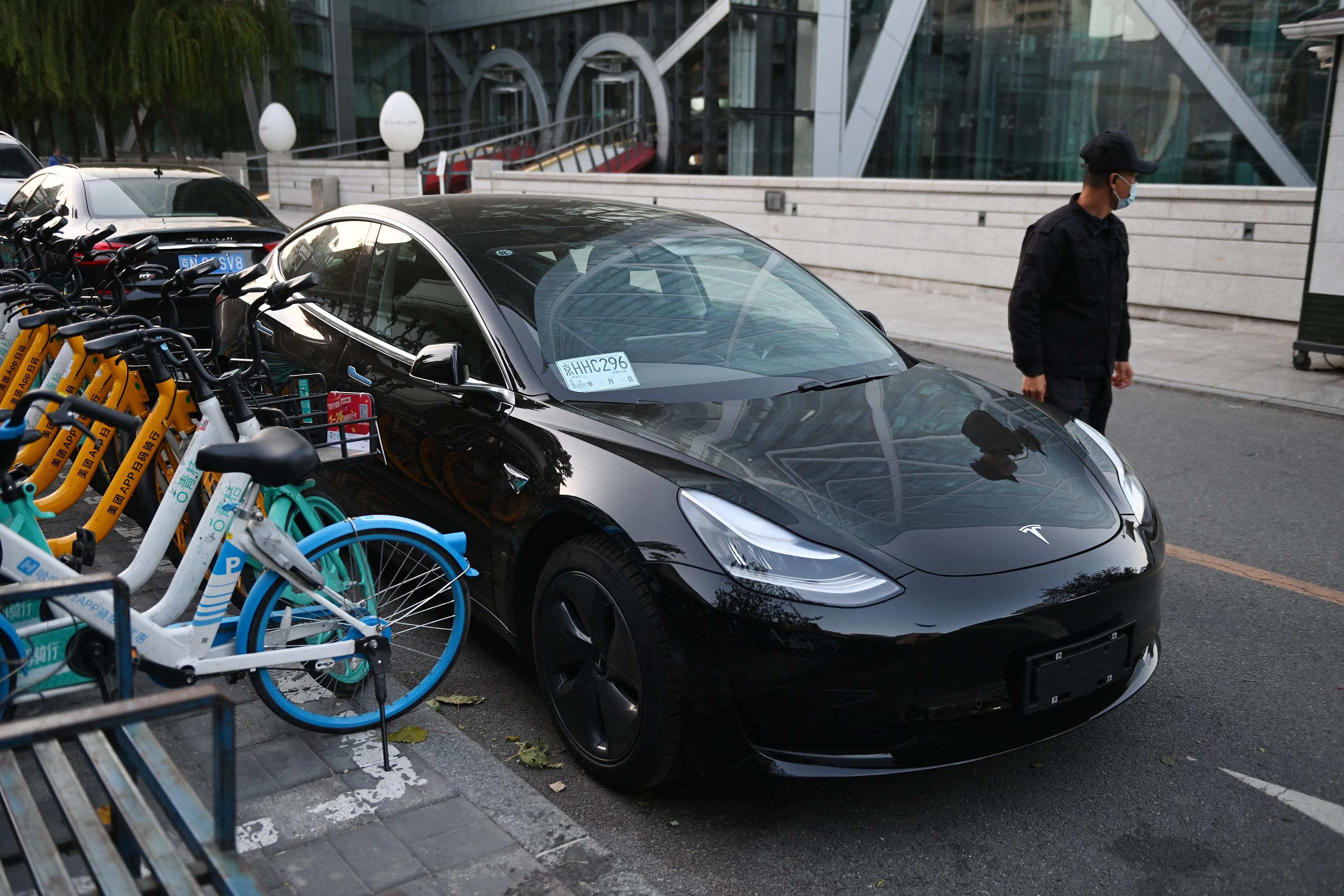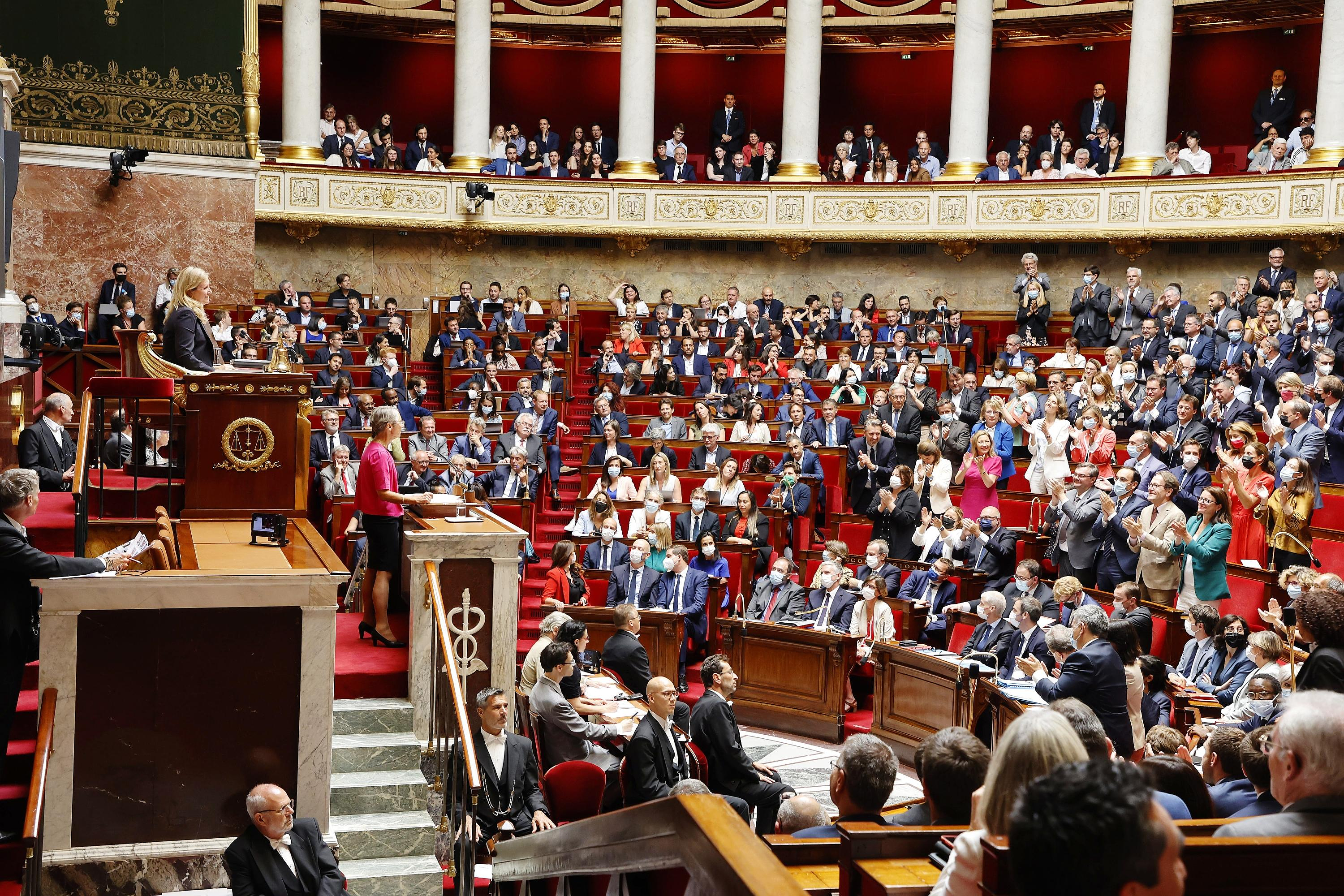The CEO of TotalÉnergies Patrick Pouyanné estimated Friday from the World Economic Forum in Davos that we must find “a way to be below 70 euros” per megawatt hour (MWh), regarding the agreement reached in November between EDF and the State on the price of nuclear electricity. “On electro-intensive, I think that indeed, if we have 70 euros, it will be complicated,” declared the manager, questioned by BFM Business on this agreement which should allow EDF to sell its electricity at a price stable average of 70 euros per MWh from 2026.
“We must find a way to be below 70 euros for electro-intensive industries,” he stressed, recalling that TotalÉnergies is both “a supplier (of electricity)” but also as a “refiner” (of oil), an electro-intensive, that is to say a large consumer of energy like the chemical, steel and glass industries. However, the manager believes that this is a price “correct enough to both make this energy transition and finance the new nuclear units” of EDF. “That’s all we’re trying to do at the same time, there are investments to be made, so I prefer to be in “finding a way to be together”,” he said.
Also read: How the State and EDF reached an agreement on a “limited” increase in electricity prices
The agreement reached between the State and EDF sets an average reference price of 70 euros for all nuclear production sold by EDF whereas in the current system, which ends from 2026, around a third of the The production of the reactors is sold at a bargain price of 42 euros per MWh. Announced in November, it sparked criticism among consumer associations and manufacturers worried about their competitiveness. This also gives the nuclear operator the possibility of signing long-term contracts with major energy consumers, which would, according to him, allow it to secure its colossal investments in its current and future reactors.
Repeating that he was ready to “sign 15, 20 year contracts” to “ultimately help finance” new nuclear reactors, Patrick Pouyanné said that nothing had “yet been signed” with EDF. “We made a call and Luc Rémont (CEO of EDF) told me that they would be ready one day to come and enter into a discussion with us and so I hope that she will commit,” said he said.

 Who was Dror Or, the Israeli father who died as a hostage in the hands of Hamas?
Who was Dror Or, the Israeli father who died as a hostage in the hands of Hamas?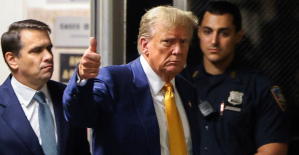 “Pay in cash”: at his trial, Donald Trump faced with an embarrassing recording
“Pay in cash”: at his trial, Donald Trump faced with an embarrassing recording Italy: a grandmother accidentally serves a bottle filled with wine to a baby, he has an alcoholic coma
Italy: a grandmother accidentally serves a bottle filled with wine to a baby, he has an alcoholic coma The mysterious skeletons of Hermann Göring's villa
The mysterious skeletons of Hermann Göring's villa Children born thanks to PMA do not have more cancers than others
Children born thanks to PMA do not have more cancers than others Breast cancer: less than one in two French women follow screening recommendations
Breast cancer: less than one in two French women follow screening recommendations “Dazzling” symptoms, 5,000 deaths per year, non-existent vaccine... What is Lassa fever, a case of which has been identified in Île-de-France?
“Dazzling” symptoms, 5,000 deaths per year, non-existent vaccine... What is Lassa fever, a case of which has been identified in Île-de-France? Sánchez cancels his agenda and considers resigning: "I need to stop and reflect"
Sánchez cancels his agenda and considers resigning: "I need to stop and reflect" After 50 years of existence, “Numbers and Letters” will disappear from the France Télévisions channels
After 50 years of existence, “Numbers and Letters” will disappear from the France Télévisions channels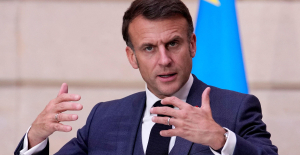 Macron reaffirms his desire not to increase taxes
Macron reaffirms his desire not to increase taxes The expulsion of families of delinquents from HLM reinforced in the future Housing law?
The expulsion of families of delinquents from HLM reinforced in the future Housing law? Health carpooling, this source of savings which arouses the ire of patients and taxis
Health carpooling, this source of savings which arouses the ire of patients and taxis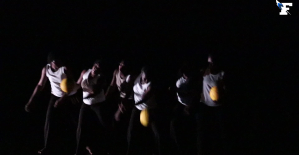 The incredible musical juggling of the Basketteuses de Bamako
The incredible musical juggling of the Basketteuses de Bamako Death of Frank Stella, the most spectacular painter-sculptor
Death of Frank Stella, the most spectacular painter-sculptor Film buff's memories of the Champs-Élysées, by Éric Neuhoff
Film buff's memories of the Champs-Élysées, by Éric Neuhoff Madonna thrills Brazilians on Copacabana beach
Madonna thrills Brazilians on Copacabana beach Omoda 7, another Chinese car that could be manufactured in Spain
Omoda 7, another Chinese car that could be manufactured in Spain BYD chooses CA Auto Bank as financial partner in Spain
BYD chooses CA Auto Bank as financial partner in Spain Tesla and Baidu sign key agreement to boost development of autonomous driving
Tesla and Baidu sign key agreement to boost development of autonomous driving Skoda Kodiaq 2024: a 'beast' plug-in hybrid SUV
Skoda Kodiaq 2024: a 'beast' plug-in hybrid SUV The home mortgage firm rises 3.8% in February and the average interest moderates to 3.33%
The home mortgage firm rises 3.8% in February and the average interest moderates to 3.33% This is how housing prices have changed in Spain in the last decade
This is how housing prices have changed in Spain in the last decade The home mortgage firm drops 10% in January and interest soars to 3.46%
The home mortgage firm drops 10% in January and interest soars to 3.46% The jewel of the Rocío de Nagüeles urbanization: a dream villa in Marbella
The jewel of the Rocío de Nagüeles urbanization: a dream villa in Marbella Facing Jordan Bardella, the popularity match turns to Gabriel Attal’s advantage
Facing Jordan Bardella, the popularity match turns to Gabriel Attal’s advantage Europeans: a senior official on the National Rally list
Europeans: a senior official on the National Rally list Blockade of Sciences Po: the right denounces a “drift”, the government charges the rebels
Blockade of Sciences Po: the right denounces a “drift”, the government charges the rebels Even on a mission for NATO, the Charles-de-Gaulle remains under French control, Lecornu responds to Mélenchon
Even on a mission for NATO, the Charles-de-Gaulle remains under French control, Lecornu responds to Mélenchon These French cities that will boycott the World Cup in Qatar
These French cities that will boycott the World Cup in Qatar Paris 2024 Olympics: Mbappé does not “think much” about the Games
Paris 2024 Olympics: Mbappé does not “think much” about the Games Rugby: a young pillar of the Vienna club, in the 3rd division, died in a car accident
Rugby: a young pillar of the Vienna club, in the 3rd division, died in a car accident Premier League: beaten by Liverpool, Tottenham moves away from the Champions League
Premier League: beaten by Liverpool, Tottenham moves away from the Champions League Bundesliga: Leverkusen easily disposes of Frankfurt, 48th consecutive match without defeat
Bundesliga: Leverkusen easily disposes of Frankfurt, 48th consecutive match without defeat